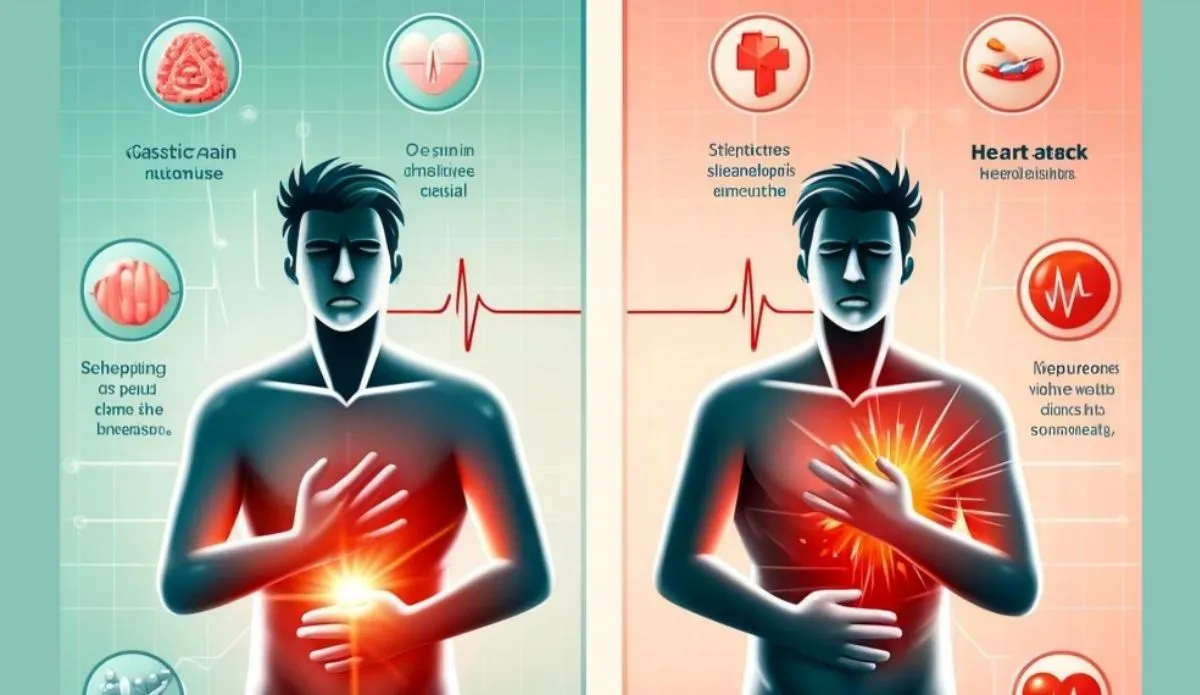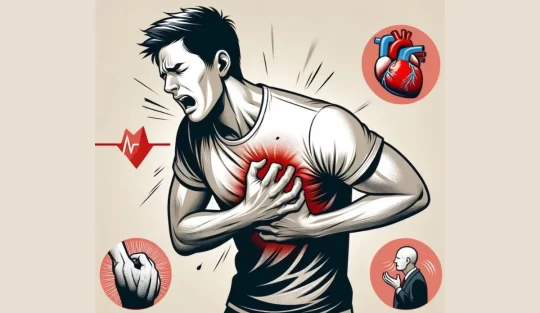Gastric discomfort and heart attacks might appear with identical symptoms, thus it is critical to distinguish between the two. Understanding these distinctions has the potential to save lives.
This essay will look at the fundamental differences between gastric discomfort and heart attacks, the significance of Omega 3 in heart health, and some often asked issues.
Understanding Gastric Pain
Causes of Gastric Pain
Gastric pain, also known as indigestion or dyspepsia, is usually caused by digestive difficulties.
Common causes include:
Overeating: Eating large meals can strain the stomach and cause pain.
Acid reflux occurs when stomach acid runs back into the esophagus, causing a burning sensation known as heartburn.
Gas: Intestinal gas can cause acute, cramping sensations.
Gastritis is an inflammation of the stomach lining that is commonly caused by infections, alcohol intake, or long-term NSAID use.
Symptoms of Gastric Pain
Gastric discomfort is sometimes characterized as a burning or gnawing sensation in the upper abdomen. Additional symptoms may include:
- Symptoms can include bloating, belching, and nausea.
- A sense of fullness after consuming a tiny amount.
- Pain that can be relieved with antacids or other gastrointestinal remedies.
Understanding Heart Attacks
Causes of Heart Attacks
A heart attack, also known as a myocardial infarction, happens when blood flow to a portion of the heart is interrupted, typically by a blood clot.
Common risk factors are:
- High cholesterol causes plaque accumulation in the arteries.
- High blood pressure increases the workload on the heart.
- Smoking causes damage to the lining of the arteries.
- Diabetes can hasten the development of atherosclerosis.
- Sedentary Lifestyle: A lack of physical activity is linked to heart disease.
Symptoms Of A Heart Attack
Symptoms of a heart attack might vary, but often include:
- Chest pain or discomfort is frequently reported as pressure, squeezing, or fullness.
- Pain spreads to the arms, neck, jaw, or back
- Shortness of breath.
- Cold sweat.
- Nausea or vomiting.
- Lightheadedness or dizziness.
Omega-3 and Heart Health
Fish oil and certain plant oils include omega 3 fatty acids, which are vital for heart health. They were exhibited to:
Reduce Inflammation: Chronic inflammation increases the chance of developing heart disease.
Lower Blood Pressure: Reduces the pressure on the heart.
Reduce Triglycerides: High triglyceride levels are connected to heart disease.
Prevent Arrhythmias: Omega 3 can help keep your heartbeat regular.
Incorporating Omega 3-rich foods such as salmon, flaxseeds, and walnuts into your diet, as well as taking supplements, can help to improve heart health and potentially lessen your risk of having a heart attack.
Frequently Asked Question
How can you tell if you’re experiencing gas or heart pain?
Gas discomfort is typically localized to the abdomen and is frequently accompanied by bloating, burp, and a feeling of fullness. It may improve with antacids or gas. Heart pain, on the other hand, typically presents as a pressure-like discomfort in the chest that can spread to the arms, neck, jaw, or back.
It may cause shortness of breath, sweating, and nausea. If you encounter any of these symptoms, you should seek medical assistance immediately.
How can I tell if my stomach ache is related to my heart?
Heart-related stomach discomfort can manifest as a deep, pressure-like ache in the upper abdomen and chest, which frequently radiates to the arms, neck, or jaw. If the pain is accompanied by symptoms such as shortness of breath, perspiration, dizziness, or a sense of impending doom, it may be a heart attack.
If you have these symptoms, you should seek emergency medical attention right once.
How can you tell whether your heart is okay?
Regular check-ups with a healthcare provider are necessary to maintain heart health. The following tests can help examine your heart’s condition:
Blood tests: Check for cholesterol and inflammatory markers.
The electrocardiogram (ECG) measures the electrical activity of the heart.
An echocardiogram uses ultrasound to visualize the structure and function of the heart.
Stress test: Determines how the heart responds to physical stress.
Coronary Angiography: This procedure visualizes blood flow through the coronary arteries.
Furthermore, adopting a healthy lifestyle that includes a well-balanced diet rich in Omega 3, regular physical activity, quitting smoking, and managing stress can all help to improve heart health.




